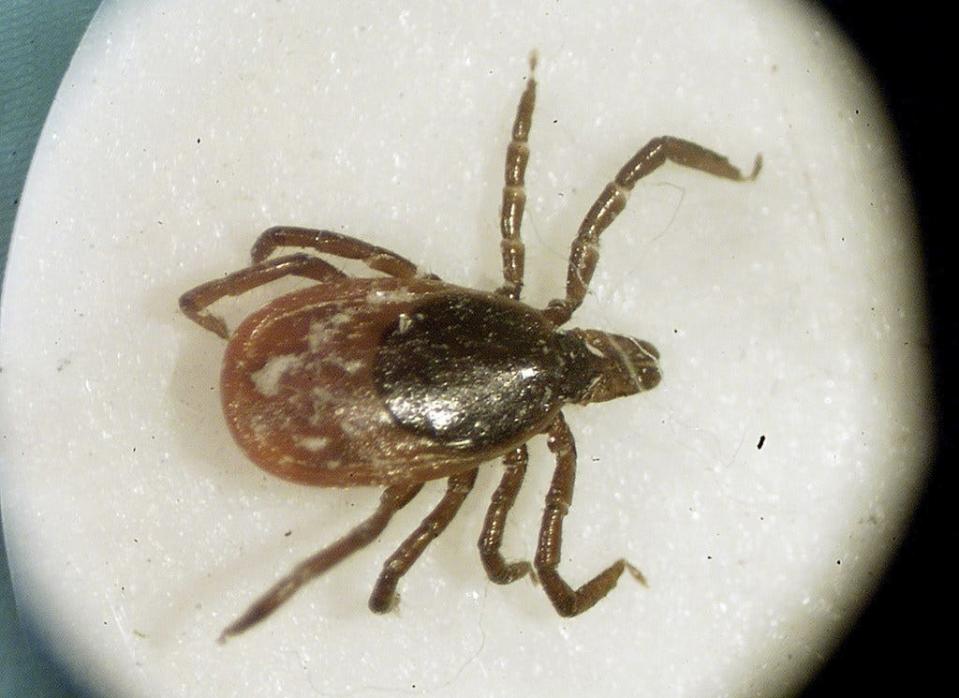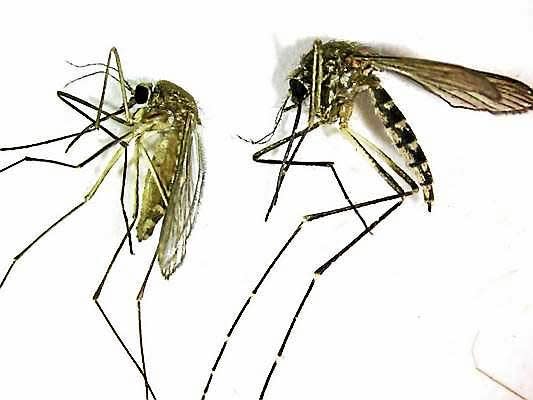Purdue, Notre Dame and IU join CDC team fighting ticks, mosquitoes
WEST LAFAYETTE, Ind. — There might not be a lot of love lost between the athletic teams associated with Purdue, Notre Dame and Indiana universities, but here's one effort their fan bases could support — battling ticks, mosquitoes and the health threats associated with them.
The three universities recently joined efforts funded by the Centers for Disease Control and Prevention to combat mosquitoes and ticks — vectors that spread pathogens — in the state of Indiana.
The CDC funded the $10 million Midwest Center of Excellence for Vector-Borne Diseases, led by the University of Wisconsin-Madison, for five years, according to an announcement by Purdue.
“The new Indiana partners are fortifying the center’s capacity to advance innovative vector-control approaches for mosquito and tick threats that are unique to the Midwestern environment,” said Lyric Bartholomay, professor of pathobiological sciences at University of Wisconsin-Madison and co-director of the Midwest Center.
“Connections to these three outstanding universities provide the exciting potential to train Hoosiers to join the battle against vector-borne diseases,” Bartholomay added in the published news release.
Funding established in 2017 involved a collaboration between universities in Wisconsin, Illinois, Iowa, Michigan and Minnesota, Purdue stated, along with public health agencies in those states.
The partnering schools and agencies work with the Indiana Department of Health to utilize Hoosiers considered experts in vector-control product development. The efforts include designing, testing and evaluating new ways to control ticks and mosquitoes, such as insecticides, sprays and other devices.

“We’re grateful and excited to be included in this second round,” said Catherine Hill, professor and interim head of Purdue’s Department of Entomology in the College of Agriculture. “Unfortunately, mosquitoes and ticks don’t pay any attention to state borders.”
"User-acceptance studies" — focus groups — reviewing products designed to control ticks and mosquitoes will be conducted at each partner university, Purdue announced.
“Having buy-in from the stakeholders, particularly for vector control, is critical,” said Molly Duman Scheel, the Navari Family Professor of Medical and Molecular Genetics at the IU School of Medicine-South Bend. “When they feel like they’re part of the technology development process, people embrace it. And if they embrace it, they have more tendency to use it.”
By involving academia, the project creates opportunities for new scientists, Purdue stated, with a key goal of creating the next generation of trained vector biologists.
“Because Indiana is now part of the center, the educational piece is going to be big,” said John Grieco, research professor of biological sciences at Notre Dame. “We’re now included in all discussions around the various vector-related issues in our state. It pulls everybody together as a cohesive unit.”
Hill’s Purdue team will focus on Lyme disease and tick pests, especially the lone star tick and dog tick, which are particularly worrisome in Indiana.
“Ticks are a big problem,” Hill said. “And one tick, in particular — Ixodes scapularis, the Lyme disease tick — is a vector of Lyme disease and multiple other diseases in the region.”

Scheel’s lab at IU will research methods to control the Culex mosquitoes, carriers of the West Nile Virus.
“West Nile virus is one of the big impacts on Hoosiers in terms of mosquito-borne illnesses in the United States,” said Scheel, who is also an adjunct associate professor of biological sciences at Notre Dame, in the announcement.
Last month, the health department of Tippecanoe County, where Purdue is located, reported that West Nile had been detected in three mosquito groups found in the county on Aug. 10, 2022. These were not human cases of West Nile, according to the Indiana Department of Health, which had notified Tippecanoe County of the discovery.
Grieco and Nicole Achee, research professor of biological sciences at Notre Dame, run a lab that's developing spatial repellants, Purdue announced, which include hanging strips or tabletop devices that create a mosquito-free perimeter.
“We’re trying to focus more on the natural products — botanicals, geranium oils and other extracts — because those are going to be much more accepted by the U.S. market,” stated Grieco, whose efforts have also included testing mosquito control methods aimed at reducing malaria and dengue, another virus spread through the bite of a certain species of mosquito.
According to the CDC, an estimated 4 billion people live in areas at risk of dengue, which showed up on the agency's radar in the 1960s.
This article originally appeared on Lafayette Journal & Courier: Purdue, Notre Dame and IU join CDC team fighting ticks, mosquitoes

